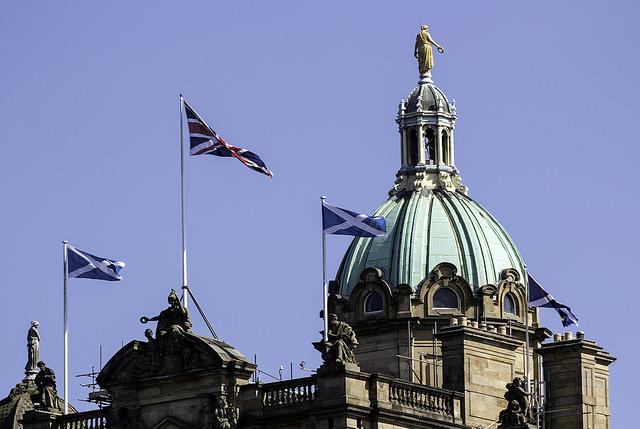Why Scotland’s ‘no’ to independence is good news for peace in the Asia-Pacific
Posted By Charles Miller on October 9, 2014 @ 14:30
 [1]The independence referendum in my native land has attracted more attention [2] on this side of the world than I would have imagined. Separatist movements in the region are studying the Scottish example to see what can be learned, while Indonesian commentators have lauded the UK’s ability to cope with separatist movements peacefully and democratically. But there’s another lesson Scotland offers the region, and it’s not as obvious as the above.
[1]The independence referendum in my native land has attracted more attention [2] on this side of the world than I would have imagined. Separatist movements in the region are studying the Scottish example to see what can be learned, while Indonesian commentators have lauded the UK’s ability to cope with separatist movements peacefully and democratically. But there’s another lesson Scotland offers the region, and it’s not as obvious as the above.
The French used to have a saying ‘fier comme un ecossais’—‘proud like a Scotsman’—and there’s no question that had the referendum been purely about national pride, the ‘yes’ campaign would’ve won handily. According to the Scottish Social Attitudes survey [3], 49% of Scots self-identify as either exclusively or predominantly Scottish, whereas a mere 11% self-identify as either exclusively or predominantly British. Recognizing that, the ‘no’ campaign made little attempt to stress British identity as a reason to vote against independence.
But the Scots did vote against independence, and convincingly so. Why? Well, the clue lies in another Scottish Social Attitudes study. That study asked groups of voters whether they’d be in favour of Scottish independence if it made them better or worse off by £500 (approximately AU$920). This relatively small amount of money was sufficient to produce a whopping 70% majority against independence in the ‘worse off’ case versus a 52% majority in favour of independence in the ‘better off’ case.
What that shows us is the ‘no’ campaign was able to convince Scots to put considerations of national identity to one side by persuading them that they’d likely incur even modest financial losses by seceding from the UK. Now many individuals might see this decision on the part of Scottish voters as ignoble and mercenary (referring to the original Act of Union in 1707, Scottish poet Robert Burns claimed his countrymen had been ‘bought and sold for English gold’). But I see it as a hopeful sign for the prospects of peace on our planet and in our region, and that’s where the Asia-Pacific angle comes back in.
If Scots, one of Western Europe’s most nationalistic peoples, can be persuaded to trade off national identity concerns for a comparatively paltry (perceived) sum of money, doesn’t that also suggest publics in the Asia-Pacific might be prepared to put aside issues of national pride over disputed territory in the face of even bigger prospective financial losses through conflict?
National pride, in my view, is a real motivating factor in international conflict. But it’s also a ‘good’ just like any other which people trade off against other things they value. You think China should go to war with Japan to avenge Nanking? Think the Paracel Islands are rightfully China’s? Ok, fine—but what if you had to choose between those national goals and a new laptop for yourself? Or a new car? Or a new house? Economic interdependence may not eliminate the national rivalries or pride that cause people to go to war. It just raises the cost of indulging those passions above that which people are prepared to pay. Everybody has a price. And that’s a good thing.
Charles Miller is a lecturer at ANU’s Strategic and Defence Studies Centre. Image courtesy of Flickr user Lawrence OP [4].
Article printed from The Strategist: https://aspistrategist.ru
URL to article: /why-scotlands-no-to-independence-is-good-news-for-peace-in-the-asia-pacific/
URLs in this post:
[1] Image: https://aspistrategist.ru/wp-content/uploads/2014/10/15089363480_092c4e4100_z.jpg
[2] attention: https://aspistrategist.ru/a-world-of-scotlands/
[3] Scottish Social Attitudes survey: http://whatscotlandthinks.org/questions/moreno-national-identity-5#table
[4] Lawrence OP: https://www.flickr.com/photos/paullew/15089363480
Click here to print.